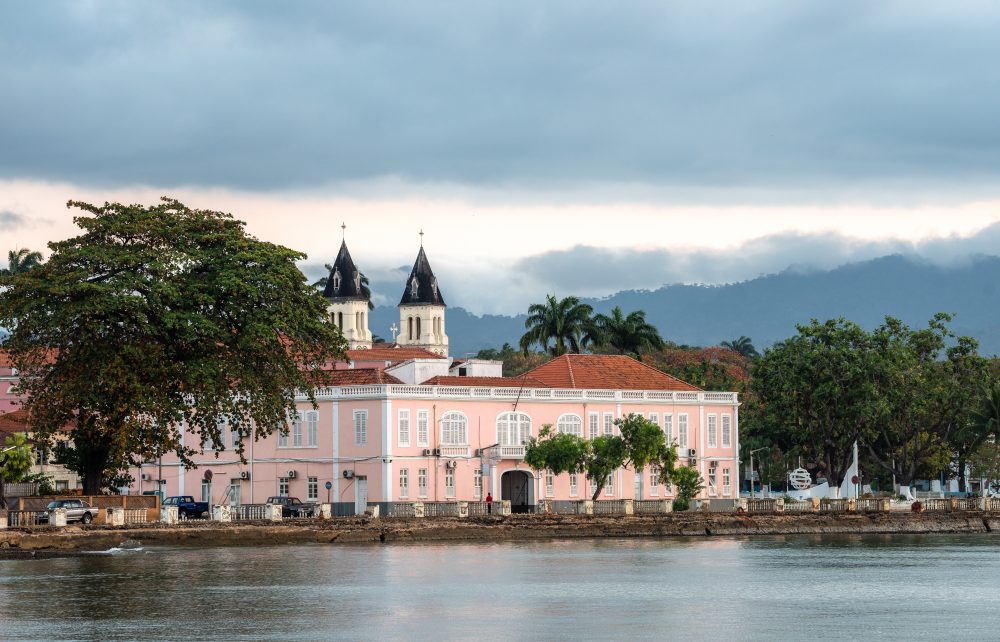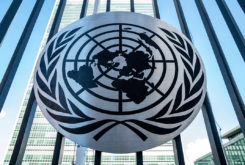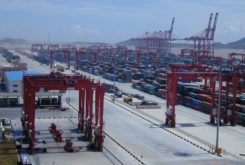Under the guidance of the International Monetary Fund, the government of São Tomé and Príncipe is attempting to boost state revenue, mostly by introducing a new VAT tax on transactions and imports. With the country dependent on imports, and undergoing economic and financial distress, analysts worry price increases will be higher than what the population can bare.
According to the new VAT (IVA) tax code, made available to CLBrief by legal database Legis-PALOP+TL, the new tax (15%), to be introduced 1 March 2020, will apply to transactions of goods and services in the national territory, by taxable persons, as well as imports of goods.
The new code exempts from the new tax transfers of goods, services and imports in the exclusive economic zone, when the acquirer’s main activity is in the exploration and extraction of hydrocarbons.
Individuals subject to VAT taxation are those involved in production, trade or services, extractive, agricultural, forestry, livestock and fisheries activities, as well as government entities and other public bodies, insofar as they carry out taxable transactions.
Employees and other persons are not considered to be taxable persons to the extent that they are bound by the employer by a contract of employment, according to the new tax code, made available by Legis-PALOP+TL.
The code exempts from VAT the provision of life insurance and reinsurance, financial intermediation operations, excluding those in which a specific fee or consideration is charged for the service, as well as transmission of gold for investment.
Also exempt is the transfer of the right of ownership of real estate, other than the first transfer, intended for residential purposes, such as urban buildings, autonomous portions thereof or land and the leasing of property intended for residential purposes, such as urban buildings, building units or land.
According to the new code, only the second and subsequent onerous transfers of real estate are subject to SISA tax, for VAT exemption purposes.
The value of the minimum income of taxable persons who are required to have organised accounting, which constitute Group 1 of the Corporate Income Tax Code (CIRC), rises to 1 million dobras (around EUR 40), which is twice the figure that had been set in 2008 at the time of the approval of the CIRC.
With the approval of the new VAT, five existing taxes are revoked: consumption tax, consumption tax on traded services, consumption tax on alcoholic and spirits and cigarettes, tax on telecommunications and hotel services, and the restaurant consumption tax.
Analysts tell CLBrief that the 15 per cent tax could cause a spike in the cost of a few essential goods, a high risk at a time when the country depends on imports and purchase power is already eroded by the devaluation of the local currency, the dobra.
One analyst even considers it likely that protests might erupt against worsening living conditions, as has happened in the archipelago in the recent past.
Such possibilities are not lost on the government. “At the code level,” explains Osvaldo Vaz, minister for Planning, Finance and the Blue Economy, “the government has taken all possible measures to mitigate the least desired impacts, especially on the most disadvantaged population.”
The tax, a required piece of the IMF austerity package, was approved last October by the National Assembly.
In its 14 November statement at the conclusion of a mission to São Tomé, the IMF considers the introduction of the VAT “a major achievement in broadening the tax base equitably and generating resources to improve public services, such as health, education, and infrastructure.”
Currently, the mission points out, the country has the lowest tax revenue rate when compared with other small state peers, and the VAT will replace current consumption and some other taxes.
“The law also includes lower rates for essential goods and the regular rate applies only to businesses with a revenue over a certain threshold; thus, the impact on the poor is likely to be limited given their reliance on subsistence agriculture and the informal sector,” says the IMF.
This type of agriculture and fishing production, developed in the country and sold on traditional markets, are exempt from VAT, according to the Finance minister.
A social protection programme supported by the World Bank will also help mitigate the impact.
The value of local currency relative to the euro “remains appropriate in helping to contain inflation in a country that depends heavily on imports,” says the IMF.
According to the IMF, the archipelago continues to face significant challenges, requiring “concerted efforts to implement decisive and difficult reforms” to achieve the fiscal consolidation necessary to “reduce public debt and boost foreign exchange reserves.”
The IMF also advises for continued restraint of current spending, particularly on personnel costs, which “will be crucial for creating room for social spending and investment.” It cautions that the 2020 budget should be based on a “realistic projection of revenue.”
The IMF’s Extended Credit Facility for São Tomé aims to put the country’s fiscal position on a sustainable path, improve the business environment to encourage private investment, and prioritise public spending to protect the most vulnerable.
According to the latest mission report, “macroeconomic conditions remain challenging. While inflation moderated, indicators point to a further slowdown of economic activity. Investment goods imports dropped, and exports contracted. Fuel shortages during mid-2019 also weighed on the economy.” On the financial side, it adds, tax revenues as of end-September 2019 were “significantly lower than programmed, although higher than last year.”




